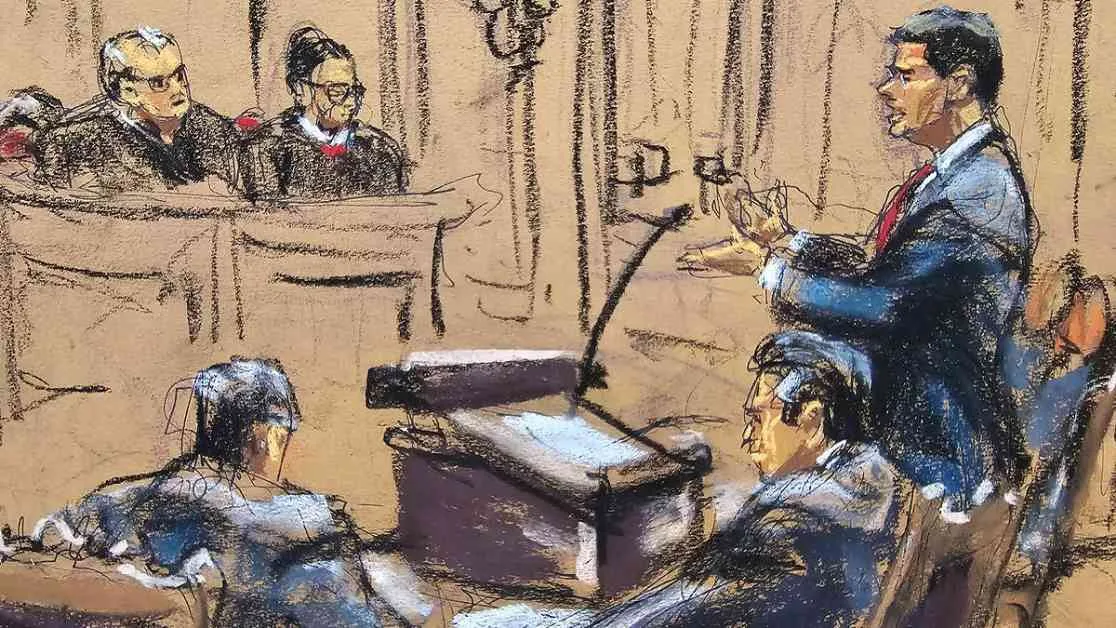Investigation into Letitia James’ Office Amid Trump Fraud Case
Appeal court judges had tough questions for New York prosecutors on Thursday as Donald Trump asked them to throw out a $454 million civil fraud judgment against him. They wanted to know why the penalties were set at almost half a billion dollars and who had been harmed in a case where neither side had lost money. It is the latest twist in Trump’s multiple legal cases that are playing out as he campaigns to return to the White House. Justice Arthur Engoron in February ordered the former president to pay $454.2 million in penalties and interest for inflating his net worth to dupe lenders and insurers into giving him better terms. The civil case was brought by New York state Attorney General Letitia James. The lawyers were back in court on Thursday as Trump seeks to have the judgement thrown out. The panel of five appeal judges bombarded Deputy New York Solicitor General Judith Vale with questions about the extent of James’s authority, the lack of victims in the conduct, and the size of the penalty.
Challenging the Judgment
At least two of the judges seemed skeptical of the case against Trump and interrupted her opening statement to ask whether there were other examples of the state suing over private business transactions between sophisticated parties using a law designed to protect market integrity. Justice Peter Moulton expressed concerns about the immense penalty, questioning how it was tethered to the harm caused where both parties seemed content with the transactions. Vale defended the penalty, citing the presence of fraud and illegality in the case. Trump arrived in New York on Thursday afternoon and is expected to address reporters at Trump Tower, though he was not present in court. The case is one of several legal entanglements Trump has faced since leaving the White House in 2021.
Legal Troubles
He currently owes nearly $90 million in federal civil penalties for defaming a writer who accused him of sexual abuse and was convicted in May on criminal charges related to hush money paid to a star. Trump has consistently denied any wrongdoing and has claimed that the cases were brought to interfere with his campaign. Justice David Friedman pressed Vale on whether there was any precedent for the attorney general suing over transactions involving sophisticated parties where neither party lost any money. Friedman pointed out that previous cases typically involved damage to consumers or the marketplace, which was not the situation in Trump’s case. The underlying issue stemmed from Trump’s time leading the Trump Organization before becoming president. Trump’s lawyer John Sauer argued that the case was brought too late and that imposing a significant financial penalty for decades-old financial statements would be unfair. Sauer highlighted that any discrepancies in Trump’s net worth were irrelevant to his lenders.
Trump’s Defense
Sauer emphasized that trial testimony showed the financial discrepancies did not impact Trump’s lenders or business partners, as the deals would have remained the same regardless of the inflated net worth. He reiterated that there were no victims or complaints from the parties involved. Trump’s lawyers have consistently maintained this argument throughout the case. Sauer further stressed that none of Trump’s lenders or business partners suffered harm due to the discrepancies on the financial statements.
Subheadings
Doubts Raised by Judges
During the court proceedings, the panel of appeal judges raised concerns about the size of the penalty and the lack of apparent harm in the case against Trump. Justice Peter Moulton questioned the rationale behind the nearly half a billion dollar judgment, highlighting the absence of clear damage to either party involved in the transactions. Justice David Friedman also pressed the prosecution on the precedent for such a case, emphasizing the usual requirement for harm to consumers or the marketplace in similar lawsuits.
Trump’s Legal Challenges
Trump’s legal battles have been ongoing since his departure from the White House in 2021. Apart from the civil fraud judgment, he faces significant federal civil penalties for defamation and criminal charges related to hush money payments. Trump has consistently denied any wrongdoing and has accused authorities of targeting him to disrupt his political ambitions. His defense team has argued that the cases lack merit and have been brought unfairly against him.
The Trump Organization’s Role
The civil fraud case against Trump stems from his tenure as the head of the Trump Organization, a real estate company founded by his family. The allegations center around inflating net worth figures to secure better terms from lenders and insurers. Trump’s legal team has maintained that any discrepancies in financial statements did not affect the outcomes of the transactions and that no harm was caused to the other parties involved.
In Conclusion
The investigation into Letitia James’ office amid the Trump fraud case continues to unfold, with appeal court judges scrutinizing the substantial civil fraud judgment against the former president. As Trump seeks to have the penalties thrown out, questions persist about the basis for the judgment and the presence of harm in the case. With Trump facing multiple legal challenges, including defamation and criminal charges, the outcome of the civil fraud case remains uncertain. As the legal proceedings progress, the implications for Trump and his businesses could have far-reaching consequences.









